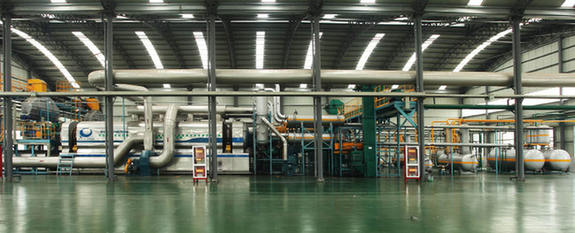Xi promises an independent, fair judiciary
President Xi Jinping has warned of serious problems in China's judicial system and promised to deal with judicial injustice in a document published in Beijing on Tuesday.
The document expanded on legal reforms agreed at the fourth plenary session of the 18th Communist Party of China (CPC) Central Committee last week.
Xi, general secretary of the CPC Central Committee, described the judicial system as troubled by unfair trials and corrupt judges. He denounced judges and prosecutors who manipulate cases in exchange of money and favors, saying, "some even go two ways by draining both the defendant and the plaintiff."
The reason for these problems is a judicial system that is neither effective nor complete, he said.
"The judicial system is the last line of defense for social justice," he said. "If it fails, people will widely question [the country's ability to realize] social justice, and stability will be hard to maintain."
INDEPENDENT JUDICIAL SYSTEM
The plan includes ensuring the independence of courts and prosecutors, and rules to monitor intervention in court cases by senior officials, publish their bad records and hold them responsible.
Officials will be prohibited from asking judicial departments to break their duty and sabotage justice, and forbids judicial departments from taking such orders from them. Officials who intervene in law enforcement will be punished in line with Party rules and may face criminal charges if their conduct causes serious problems such as wrongful verdicts.
Courts and procuratorates with jurisdictions across different administrative regions will be established to eliminate interference. Some local officials take advantage of their posts to meddle in particular cases within their jurisdiction, leading to biased judgments, Xi said. Cross-administrative courts and procuratorates will help eliminate the practice.
FIGHTING WRONGDOING
New rules will regulate interaction between judges, lawyers and other interested parties. "Unwritten rules" in the judicial system -- bending the law for money or favors - will be stopped, along with privilege or brutality in law enforcement. Police and prosecutors must follow legal procedures.
Xi criticized some law enforcement officers and prosecutors for not collecting enough evidence or doing it illegally, undermining the justice and efficiency of trials.
There will be new rules of collection, presentation and examination of evidence, and on witness testimony. Courts, prosecutors, police and prisons must improve the transparency of their work, allowing the public to access documents and other information as the law allows, and must follow judicial procedure.
DEFENDING PUBLIC INTERESTS
As part of the changes, prosecutors may be allowed to institute public interests litigation.
In current practice, citizens, corporations and other organizations cannot initiate public interests lawsuits against governments for abuse of power or nonfeasance in cases like environmental pollution and public land use, because they are not considered as having a direct stake.
The restraint of public interests litigation has "led to a lack of effective judicial supervision on illegal administrative acts and is disadvantageous to the promotion of administration by law and enhanced protection of public interests," Xi said.
If this measure is adopted, prosecutors can fill the void and supervise the government. Courts will be encouraged to take on cases against government departments and governments will be required to appear on court.
Source: Xinhua

